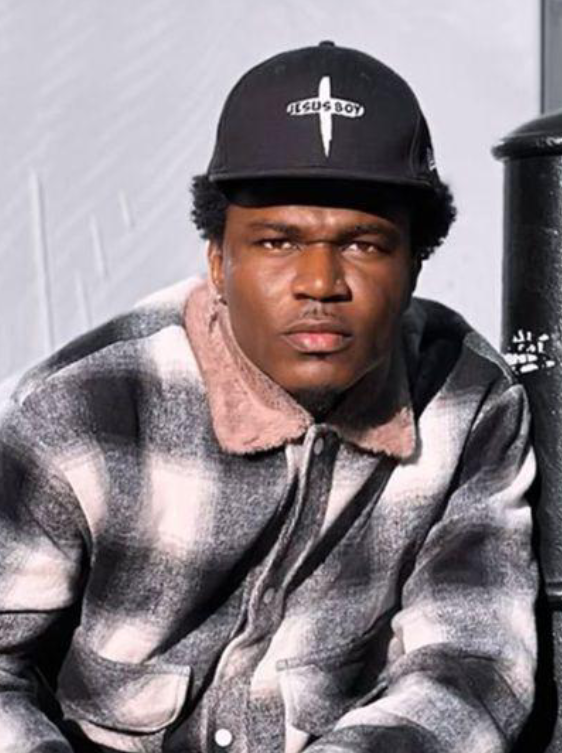
Spyro Raises Alarm: “No One Is Coming To Save Us” — Singer Urges Nigerian Celebrities To Use Their Platforms To Demand Accountability From The Government

Nigerian singer Spyro has sparked intense reactions online after delivering a powerful message to fellow entertainers, religious leaders, and influencers across the country. In a heartfelt appeal shared on his Instagram page, the “Who’s Your Guy” crooner urged those with influence to stop being silent and use their platforms to demand accountability from the Nigerian government amid the growing insecurity and socio-political tension rocking the nation. His words have since ignited widespread conversations about the role of celebrities in nation-building and the urgent need for collective responsibility in times of national crisis.
Spyro, known for his thought-provoking lyrics and consistent advocacy for a better Nigeria, did not mince words as he addressed what he called a “critical moment” in the country’s history. He warned that silence from influential figures at such a dangerous time could be catastrophic, as the country edges toward deeper chaos. In his passionate post, he wrote, “Now is the time to use your platform to demand accountability from the government. No one is coming to save us; they are only coming to kill, steal, and destroy.”
The singer expressed grave concern about the worsening insecurity, economic hardship, and political instability plaguing Nigeria, stressing that these issues are not just political but existential. According to Spyro, if the situation deteriorates any further, even the glitz and glamour of entertainment, religion, and business will crumble under the weight of national turmoil. “A war in a country threatens everyone,” he warned. “Guess what, superstar — every surviving person will be too busy looking for what to eat, and no one will have time to listen to music, watch movies, go to church, mosque, or even do business.”
Spyro’s message was as much a wake-up call as it was a reality check. He highlighted the futility of fame and influence in a country on the brink of collapse, urging celebrities, pastors, imams, business owners, and content creators to realize that their voices carry the power to effect change before it’s too late. “Use your platform now while it counts,” he emphasized. “War takes the people, and without the people, there is no platform or influence.”
The singer’s statement has been hailed by many Nigerians as brave and timely, especially at a period when the nation faces escalating economic hardship, rising food prices, and increasing insecurity in several regions. For some, Spyro’s outcry reflects the collective frustration of millions who feel neglected by those in power. For others, it is a direct challenge to the celebrity class, many of whom prefer to stay silent on political matters out of fear of backlash or the desire to maintain brand endorsements and public neutrality.
His warning, “No one is coming to save us,” struck a deep chord with citizens who have grown weary of promises from political leaders. Spyro’s reference to the biblical phrase, “The devil disguises as an angel of light,” was interpreted by some as a caution against misplaced hope in political saviors who might appear to bring solutions but whose true intentions may be destructive. He reminded everyone that the responsibility to demand change lies not just with the government but with every Nigerian who has the means to influence others.
Since sharing his message, social media platforms have been flooded with mixed reactions. Many users praised Spyro for his courage and sincerity, describing him as one of the few celebrities willing to speak truth to power. A Twitter user wrote, “Spyro just said what many are too afraid to say. This is not the time for quiet diplomacy; our silence is killing us.” Another commented, “If more artists use their platforms like this, maybe the government will finally realize that Nigerians are no longer sleeping.”
However, not everyone was entirely supportive. Some critics accused the singer of being overly alarmist, arguing that entertainers should focus on their craft rather than politics. One comment read, “It’s not every time musicians must talk politics. Sometimes, peace comes from calm, not confrontation.” But in response, supporters of Spyro pointed out that art and activism have always gone hand in hand, citing icons like Fela Kuti and Sound Sultan who used their music to speak against oppression and corruption.
Spyro’s reference to late singer Sound Sultan, whose 2010 song “Light Up Naija” was a call for social change, underscores his belief that music and influence should be tools for national progress, not just entertainment. He reminded his peers that history remembers those who stood for truth during dark times, not those who stayed silent for convenience. “It looks like a savior is coming,” Spyro added, “but the devil always disguises as an angel of light. His actual aim is to steal, kill, and destroy.”
The singer’s message comes at a time when Nigeria is grappling with multiple crises — economic downturn, rising inflation, kidnappings, and political discontent. For the average Nigerian, life has become a daily struggle marked by uncertainty and fear. Spyro’s outcry reflects the collective anxiety of a population yearning for leadership, justice, and accountability. His statement also mirrors the sentiment of a new generation of artists who are refusing to stay neutral in the face of national decay.
Observers note that Spyro’s call for action is not merely directed at the elite but at every Nigerian with a voice, platform, or influence — from social media users to business leaders. His words serve as a reminder that silence and indifference are forms of complicity, and that the time to act is now. The message resonates strongly in an era where social media activism can rapidly shape public opinion and pressure governments to respond.
Spyro’s stance adds him to a growing list of entertainers who are choosing to confront national issues head-on rather than focus solely on personal success. By speaking out, he challenges the notion that entertainment should exist in isolation from politics, arguing instead that art should serve as a mirror to society and a catalyst for change.
In a country where hope often flickers under the weight of bad governance, Spyro’s voice rings out as both a warning and an inspiration. His message — raw, emotional, and unfiltered — reminds Nigerians that the fate of the nation cannot be outsourced to foreign aid, religious leaders, or political messiahs. Change, he insists, begins with accountability, and accountability begins with speaking out.
As Nigerians continue to digest his message, one thing is certain: Spyro has sparked a national conversation that cannot easily be ignored. Whether or not others in the entertainment industry will rise to the occasion remains to be seen, but his words have planted a seed — a reminder that in times of crisis, silence is not neutrality, it is surrender. And for a country teetering on the edge, the call to use one’s voice may just be the lifeline it desperately needs.


